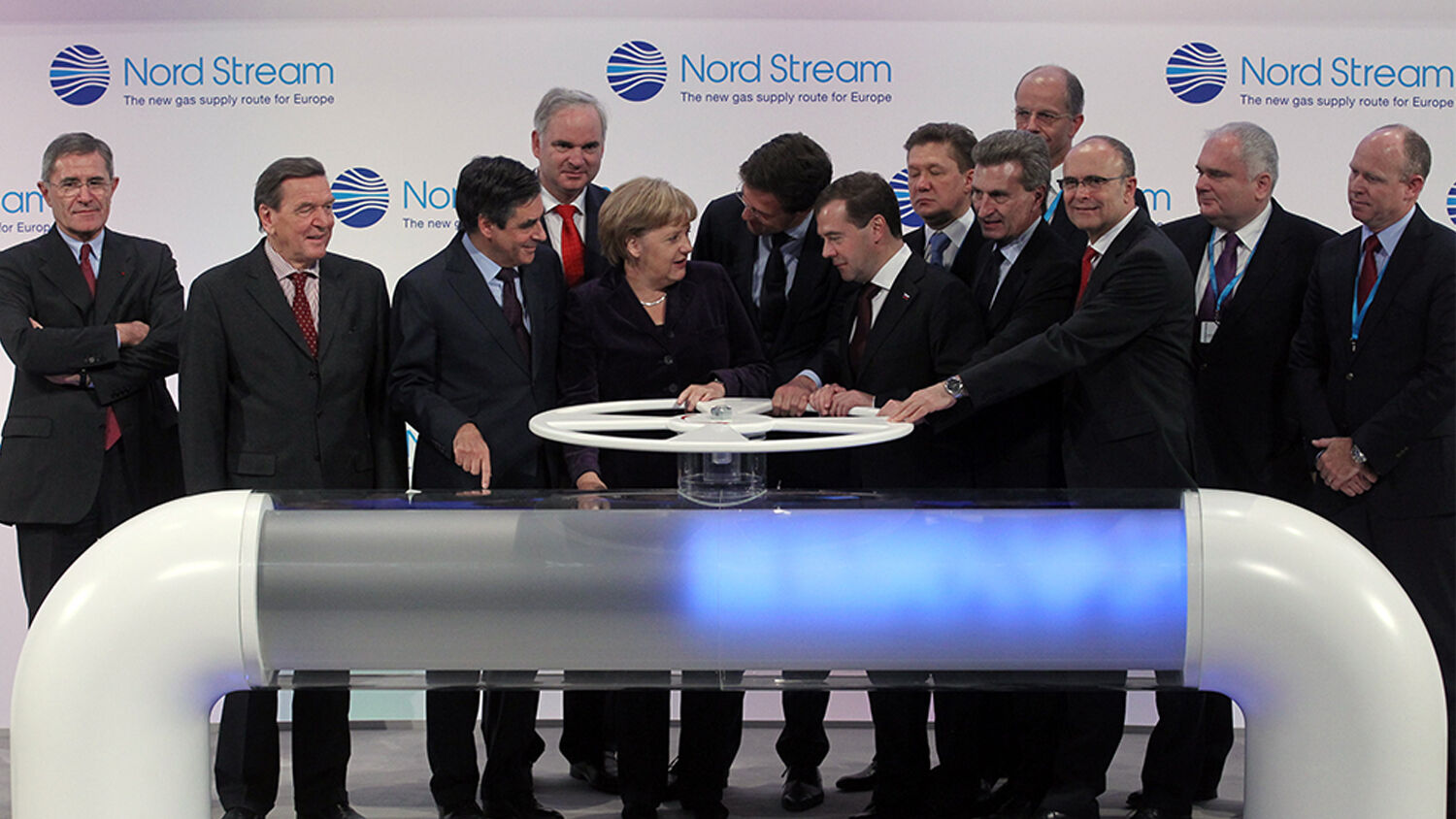
French Prime Minister Francois Fillon, German Chancellor Angela Merkel, Dutch Prime Minister Mark Rutte, Russian President Dmitry Medvedev and European Union Energy Commissioner Guenther Oettinger turn a wheel to symbolically start the flow of gas through the Nord Stream Baltic Sea gas pipeline while former German Chancellor Gerhard Schroeder watches at a cemerony on November 8, 2011 in Lubmin, Germany. The Nord Stream pipeline runs through the Baltic Sea and will supply Europe with natural gas from Russia.
Sasha Mordovets/Getty Images
Week in Review: German-Russian Collusion, Iran Hits Saudi Tankers, Airlines Bow to China, Secret Drug War, and Much More
Show Notes
- As America’s politicians and press fret over possible U.S.-Russia collusion, the relationship between Russia and Germany grows deeper. We’ll look at meetings between German leaders and Russian military leaders, and why President Donald Trump has such a difficult task convincing Germany to buy natural gas from America rather than from Vladimir Putin.
- Iran-backed forces attacked Saudi Arabian oil tankers, and the Saudis decided to halt oil shipments in the Red Sea. This shows Iran’s success in implementing its strategy to control Middle Eastern waterways.
- As part of its efforts to absorb Taiwan, China pressured airline companies not to recognize Taiwan’s independence, and they submitted—even American airlines like Delta and United.
- We’ll also talk about Germany’s novel solution to get more soldiers in its army, why Syria may reach a point where it splits from Iran, more military cooperation between the giants of Asia, and China’s secret weapon to destabilize America.
Links
- German-Russian Collusion
- Airlines Bow to China
- Iran Hits Saudi Tankers
- German Defense Spending
- Russia’s Shifting Stance on Iranian Presence in Iran
- Russian S-400 Missile Systems in China
- Secret Drug War
